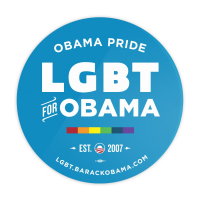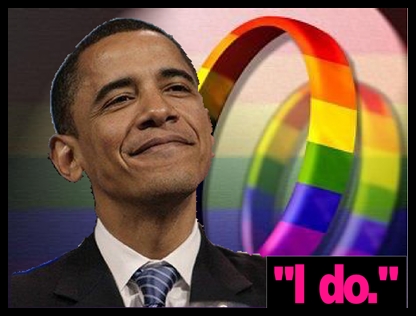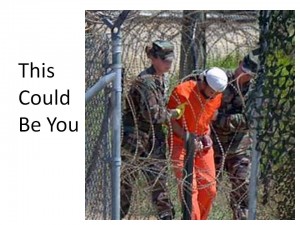 “I’ve just concluded that for me personally it is important . . . to go ahead and affirm that I think same-sex couples should be able to get married.” These few words by President Barack Obama, on May 9, 2012, are certain to go down in history as a major tipping point in the march toward full marriage equality in the United States.
“I’ve just concluded that for me personally it is important . . . to go ahead and affirm that I think same-sex couples should be able to get married.” These few words by President Barack Obama, on May 9, 2012, are certain to go down in history as a major tipping point in the march toward full marriage equality in the United States.
Uttered without fanfare, they unlocked a flood of reactions, which predictably ran the gamut from jubilation to disgust. Some advocates have criticized the president for his slow self-described “evolution.” In fairness, their skepticism is well founded. Obama’s evolution, dating back to 1996 during his campaign for the Illinois State Senate, has not followed a straight line to this point. His views have been shaped by prevailing cultural winds and politics, and along the way he has stood against same-sex marriage. This public and presidential statement, however, gives every indication of sticking. The president’s fourth consecutive proclamation of June as Pride Month included his support for marriage equality for the first time.
Some people have refused to believe Obama’s endorsement at this time was anything more than basic election-year politics at play. Steve Weinstein said, “It’s not cynical to figure out that money was undoubtedly involved. California politician Jesse Unrah’s famous dictum that ‘money is the mother’s milk of politics’ is just realpolitik stated baldly.” Also, reportedly, one in six major donors to Obama’s campaign is gay. Then, of course, there’s the little nudge the president got from his vice president, Joe Biden, who opened the can of equality on Meet the Press, just three days before Obama himself made his declaration.
Opponents of Obama and same-sex marriage also cited politics as a way of boosting presumptive Republican candidate Mitt Romney’s chances. Family Research Council president, Tony Perkins, said, “I think that Barack Obama has helped fit that missing piece of intensity that Mitt Romney is going to need.”
But polling has generally supported Obama’s announcement. A USA Today poll found “51% approve of Obama’s new position on same-sex marriage, compared with 45% who disapprove. Nearly 13% say his shift in position will make them more likely to vote for him, while 26% say it will make them less likely, suggesting that more supporters of . . . Mitt Romney feel more strongly about this issue than do base supporters of Obama.” But there have also been indications that the issue will not be a major factor in the election: “There’s been a dramatic zero-point shift in the polls since Obama came out for gay marriage,” tweeted Nate Silver.
And then, on May 19, came the NAACP’s watershed resolution, in support of marriage equality, “as a continuation of [the organization’s] historic commitment to equal protection under the law.” NAACP president, Benjamin Jealous, said: “It is [our] responsibility, [our] history . . . to speak up on the civil rights issues of our times. We are both proud of our history and challenged by it—challenged to never allow threats to equality for all people go uncontested.”
We can’t forget that Obama’s “personal” stance, and the NAACP’s endorsement—while important and historical—are not by any stretch the equivalent of written law guaranteeing equal rights and benefits to same-sex couples. Indeed, as we are only too painfully aware, even in the six states (plus DC) where residents currently enjoy legal marriage equality, their state governments are hamstrung by the continued application of the federal DOMA (the Defense of Marriage Act, 1996), which defines marriage as the legal union of one man and one woman. Even the repeal of DADT (Don’t Ask, Don’t Tell), officially lifted in September 2011, left in its wake an egregious number of inequities for spouses and partners of servicemembers (DOMA, of course, among them).
Obama had a major hand in the repeal of DADT, and his administration has ceased to defend DOMA in court. And, especially with his endorsement of marriage equality, if he is re-elected, DOMA is very likely to be repealed in his second term. The court challenges to DOMA continue to tilt in favor of equality.
Speaking of court challenges, another nail was driven into the coffin of the discriminatory Proposition 8 on Tuesday, when the 9th Circuit Court of Appeals denied the request by proponents for an en banc rehearing of the case. That seemingly endless battle is now probably, and finally, headed to the Supreme Court, where, we are very hopeful, the ban on marriage equality in California will be eliminated, once and for all.
In spite of these giant steps, there’s plenty of work left to be done, to get us where we want and deserve to be. And to those who have been disappointed and made to wait for equality, while suffering the effects of discriminatory laws, Obama’s words of endorsement may seem hollow or insubstantial. But words do matter. And a tide cresting toward justice cannot be turned back, as efforts continue to “bend the arc of the moral universe toward justice.”
National and local polling on marriage equality is steadily trending toward acceptance. Whether or not same-sex marriage figures prominently in November, and whether or not Obama is re-elected, it’s fair to say that we’ve boarded the train, it’s on the rails, and its inevitable destination is full marriage equality. The president’s endorsement and the walls that have tumbled down since mark our route even more clearly.
Today’s young people, who lead the support for LGBT rights and marriage equality, are the future’s grandparents, who will say to their grandchildren, “Can you believe there was a time when it was illegal for your moms to get married?”
Presidential Words That Matter,



